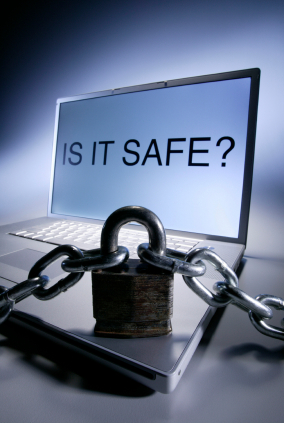
Cyber Security: 10 Ways to Improve the Security of Your Computer
In recognition of National Cyber Security Awareness Month, we are bringing you a series of articles to provide you with critical cyber protection tips and information.
These tips will help you keep your information safe, ensure you are current on FBI recommended protocols for your organization’s information safety, and how everyone can take steps to ensure that they and their loved ones are cyber safe.
A sobering reminder about computer security
Computers, laptops, iPads, and mobile devices offer windows to the world. At the same time, the world is looking back at us.
We trust our computers with personal information, banking, bill paying, connecting with family, shopping, and surfing the internet. We constantly communicate with family members, friends, business colleagues through emails, text messaging, and social networks. With this ease of use comes great responsibility. Most importantly, we need to keep our information and the information of others safe and secure while recognizing the reality that attackers seek to steal our personal information for profit, sometimes to harm us, and to infect our business networks. Once infected, attackers steal our personal information, change configurations and install malicious malware to leverage attacks or spread to others.
10 tips to keep your computer, your information, your colleagues and yourself safe:
-
- Make sure you are connected to a secure network
- Install and use Anti-Virus software
- Enable a firewall
- Disable services that are non-essential
- Remove unnecessary software that you will never use
- Modify any unnecessary default features
- Secure your web browser
- Apply software updates and enable future automatic software updates
- Keep your personal and business information separate
- Never plug an unknown USB drive into your computer
A note about USB drives:
-
- Remember that dependence on USB drives can leave you very vulnerable.
- USB drives can be easily lost or stolen and can result in many lost hours of work.
- USB drives have been used for malicious intent to infect other computers and networks.
- USB drives are used to steal business information.
What else can I do?
Use caution with email attachments and web links. Watch for emails with outlandish names, misspellings, and that entice you to click to a suspicious link or attachment.
-
- Exercise caution when providing personal or sensitive information (SS#, DOB, credit card information, address, etc.)
- Create strong passwords that are difficult to crack (at least 8 characters or more with upper and lower case letters and at least one symbol). Do not use your birthday, business name, or child’s name.
- Choose security questions that cannot be answered by checking internet information about you (where you attended college, name of your employer, etc.)
- Treat all information as public – the internet is a public resource
- Share only with people you know
- Beware of strangers
- Trust your instincts!
 Kathy Leodler Kathy LeodlerChief Executive Officer Email:kathy.l@rampartgroup.com Phone: (360) 981-2703 PI License #3555 |
 Paul Leodler Paul LeodlerExecutive Vice President Email:paul.l@rampartgroup.com Phone: (360) 981-3397 PI License #4180 |
We at Rampart Group are committed to your security. Call 1-800 421-0614 or contact us today with your security or investigative needs.
